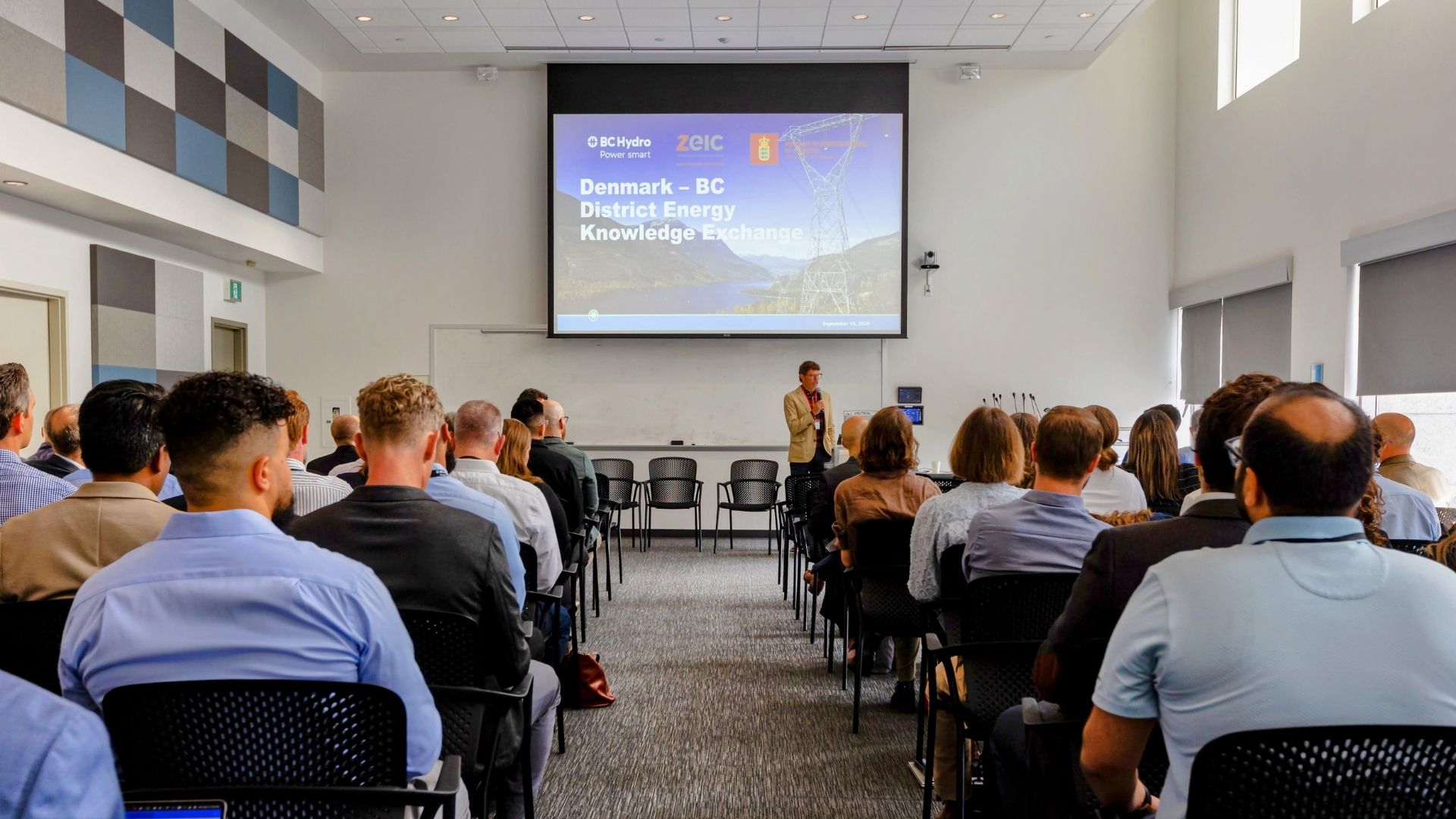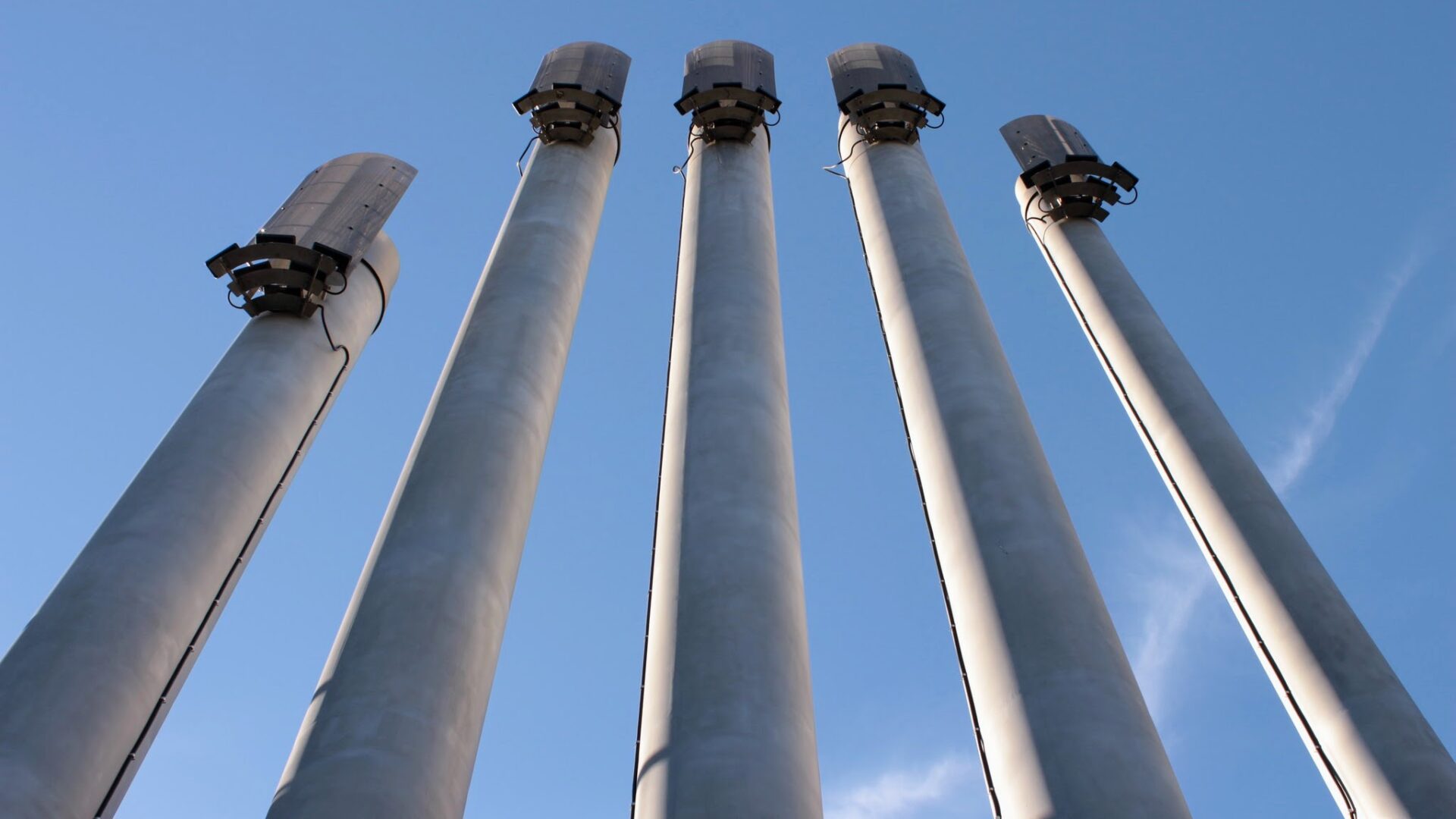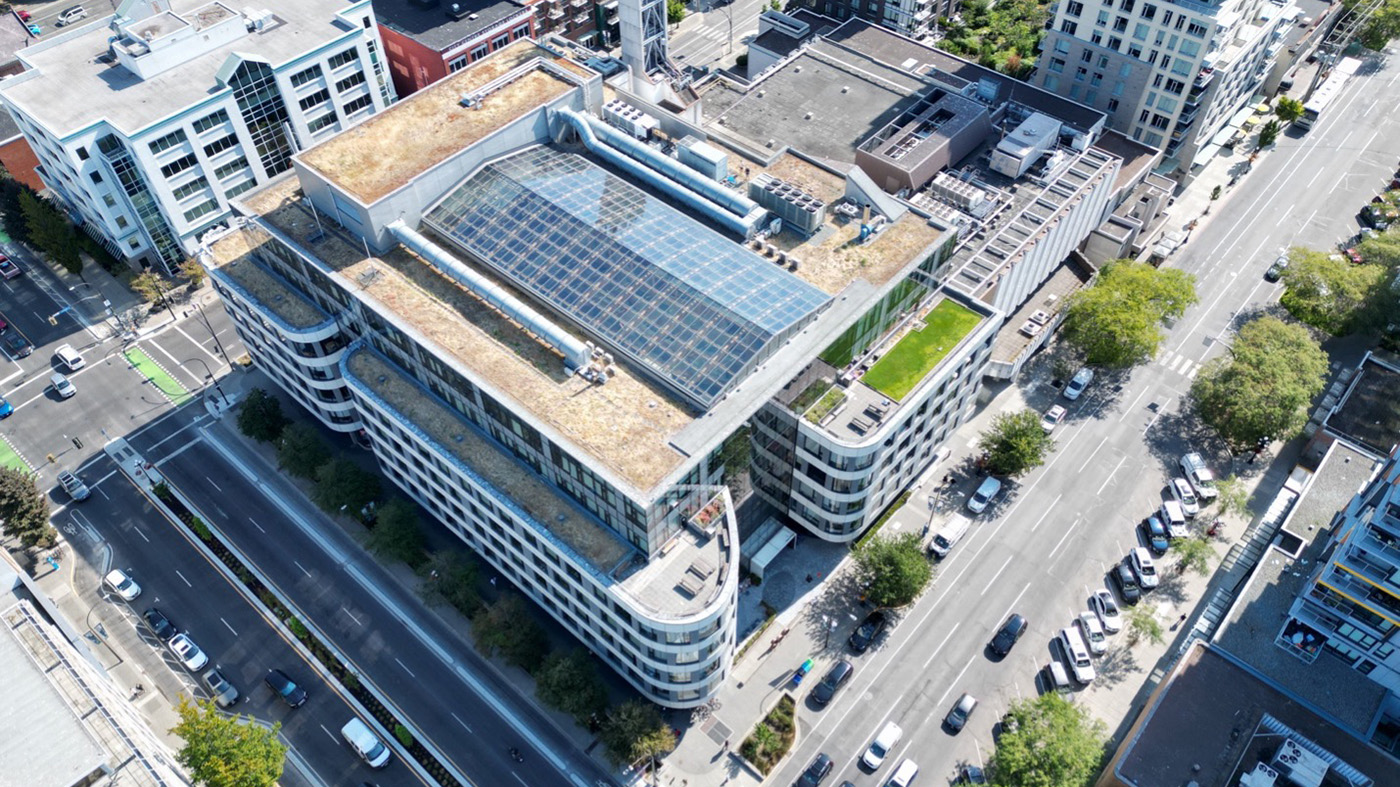
Canada’s Waste Heat Opportunity: Trends, Tech, and What Comes Next
October 16, 2025
Denmark - BC District Energy Knowledge Exchange (Image credit: ZEIC)
In the wake of the 1970s global energy crisis, Denmark made a strategic decision to reduce its dependence on imported fossil fuels and pursue long-term energy security. Confronted with volatile oil markets and economic vulnerability, Danish policymakers turned to renewable energy and efficiency as central pillars of their national strategy. This shift catalyzed decades of investment in wind power, district energy, and innovative policy frameworks, laying the foundation for Denmark’s global leadership in clean energy solutions today.
This investment has proven even more foresightful in light of the Russian disruptions to European gas and energy needs, and is therefore of continuing relevance for Denmark as it pursues genuine energy sovereignty — a need British Columbians can increasingly relate to.
Despite being the leader in North America, Metro Vancouver started from a different position. From early sustainability-focused leadership by Vancouver and Richmond, there is now a remarkable convergence of what both B.C. and Denmark are seeking, in terms of decarbonization, energy security, price stability, workforce transitions, and economic development.
In areas with consistently high thermal energy demand — such as campuses or clusters of large buildings — where electricity capacity is limited or where recoverable waste heat is available, district energy can be a powerful solution.
To support these opportunities, the Zero Emissions Innovation Centre (ZEIC), BC Hydro and the Royal Danish Consulate brought together over one-hundred leaders from around the province on September 15, 2025 to share lessons and insights on how to build these district energy systems (DES).
This event built on the earlier online thermal energy symposium that ZEIC and the Consulate hosted this summer, as well as linking to the region-wide analysis that ZEIC, BC Hydro, and Metro Vancouver Regional District are collaborating on to explore these systems’ full range of potential benefits.
Key takeaways
Technology is rapidly advancing and helping find new sources of heat, and optimize systems in ever-more granular ways. Examples included:
- Denmark leads with industrial-scale seawater CO₂ heat pumps (the largest in the world, at 70-megawatts, is located in Denmark) illustrates that the technology can work.
- More advanced metering, such as provided by Kamstrup, can significantly reduce the waste heat generated and lost, sometimes as much as 20 per cent through simple adjustments.
- Harnessing and capturing waste heat from data centers is a growing area of interest and promise, with the Danish government and utilities thinking about and investing deeply in this space.
Financing models need to be shifted to account for the full value of district energy systems, and to create space for more diverse project developers. Examples included:
- Canada’s cleantech Investment tax credits (ITCs) have uneven application in district energy projects, with waste heat technologies currently ineligible.
- Developers, utilities, and building residents all have different expectations around costs and returns, and clearer explanations are needed on how these are broken down.
- The Canadian Infrastructure Bank (CIB)’s project size thresholds (sometimes as high as $200 million) are much too big for district energy systems, and new project aggregation schemes could help advance support for these projects.
To expand the number of professionals qualified to design and permit these systems, the industry must invest in ongoing training and knowledge sharing. Examples included:
- Sharing examples of novel business models — such as Lonsdale Energy Corporation’s hybrid ownership structure and Danish municipal cooperatives — can help broaden understanding of the many ways these systems can be developed and owned.
- The public sector needs to coordinate more closely on the regulation of buildings and energy systems, as local government implementation of the Energy and Carbon Step Codes can function as an aspect of area-based energy planning — if combined effectively with BCUC joint-planning exercises for utilities.
- Private sector players need supportive capacity building, similar to what ZEIC offers for the building sector through the Zero Emissions Building Exchange (ZEBx), and focused on building a robust ecosystem of specialized consultants, designers, and tradespeople.
B.C. needs to adopt more robust policy processes (especially localized heat planning) to ensure that the full promise of DES can be realized, and minimize the risks posed by a discoordinated energy transition. Examples included:
- B.C. needs an action plan to deliver on the principles of Powering Our Future, with specific recognition of the value of DES and the need for localized heat planning.
- DES needs to be highlighted as a system-scale demand management solution in areas with electricity system constraints.
- Connection bylaws, reliable service delivery, and competitive pricing are essential for developer trust. Richmond’s mandatory peer review process was highlighted as a successful fix for early reliability concerns.
Speakers and presentations
Below are all speakers and their presentations available for download.
Keynote Presentations
- John Tang — Danish Energy Agency
- Mathieu Lévesque — Building Decarbonization Alliance
Danish Case Study
District Energy “State of Play” in Metro Vancouver
- Moderator: Justin Chin — Introba
- Panelists:
- Derek Pope — City of Vancouver NEU
- Alen Postolka — LIEC
- Alison Gu — Researcher / City of Burnaby
International Area-Based Planning Examples
- Moderator: Kevin Wallace — BC Hydro
- Panelists:
Early Findings: Data Centre Waste Heat Recovery
Danish Technologies & Case Studies
- Kamstrup — Smart Metering & Monitoring
- MAN Energy Solutions — Industrial-Scale Heat Pumps
- Logstor — District Piping Systems
- DESMI — Pumping Solutions
Ownership & Operational Models for District Energy
- Moderator: John Rathbone — Rathco
- Panelists:
- Malcolm Shield — Wesgroup
- David Matsubara — City of Surrey
- Luke Gillies — Lonsdale
What comes next
As discussed throughout the workshop, Metro Vancouver is at a unique and exciting transition point in time in its local energy planning.
ZEIC, BC Hydro, and Metro Vancouver have partnered on a study to determine the region-wide potential for district energy systems. Reshape Strategies and the Danish Trade Council are exploring how Canada can merge burgeoning data centre demand with waste heat recovery opportunities. BC Hydro is exploring how DES can be supported through demand management interventions and incentives.
With the review of the provincial climate plan due before the end of the year, and significant energy planning across the region and the province underway, DES are poised for even more exciting developments in 2026. Stay tuned for more.




